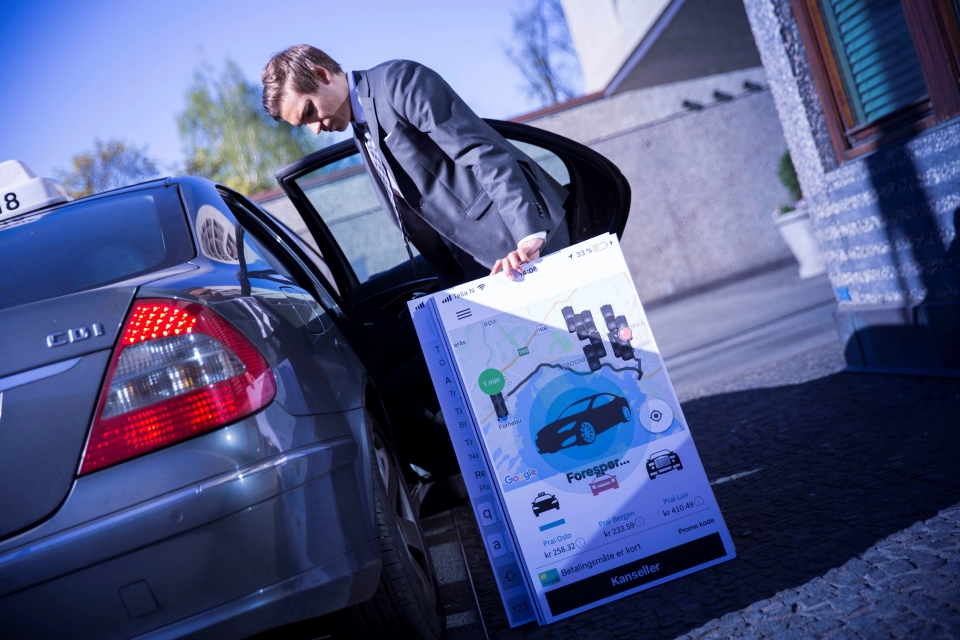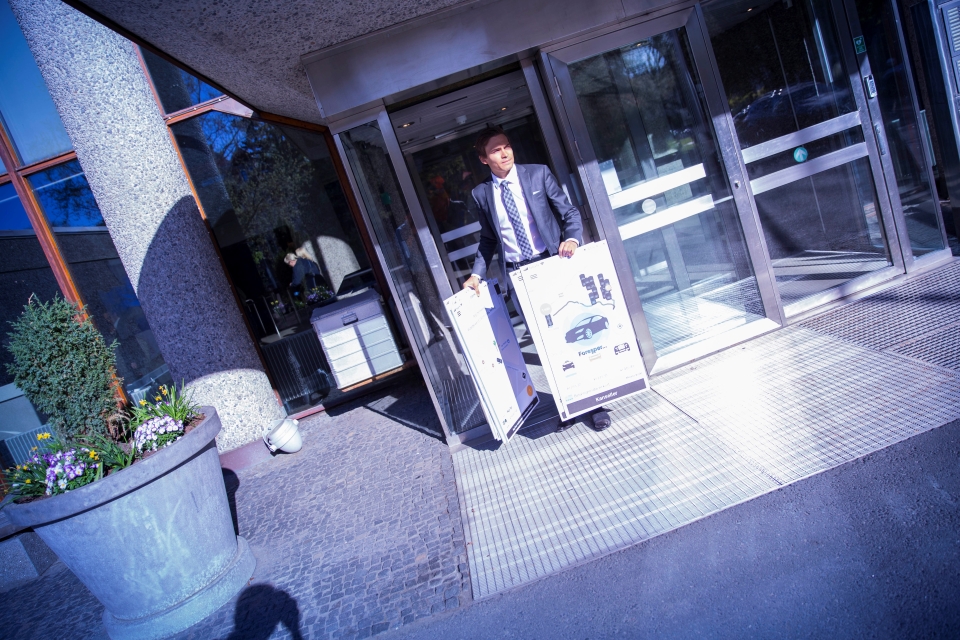In court with Prai – when technology and innovation challenge the established
The case between Prai AS and Oslo municipality regarding digitalization of «hailing a taxi» (‘prai’ = Norwegian for ‘hail’) illustrates how start-ups can succeed by being solution-oriented when navigating the tense gap between law and technology.
The case between Prai AS and Oslo municipality regarding digitalization of «hailing a taxi» (‘prai’ = Norwegian for ‘hail’) illustrates how start-ups can succeed by being solution-oriented when navigating the tense gap between law and technology.
While assisting the start-up Prai AS in a case against Oslo municipality, we have observer how some players in reality prevent progress and impede the implementation of good ideas.
Prai’s idea is to digitalize the «hailing of taxis». The traditional, «physical» hailing has its obvious limitations, so Prai makes it easier for the passenger to connect with the nearest taxi driver, and contributes to lower prices as the app gives suggestions to what the trip should cost.
Prai’s main goal is to open up and make taxis more attractive, consequently reducing the number of empty rides. This in turn is good for the environment and increases the driver’s earnings.
When Prai was released, Oslo municipality (the licensing authority) sent an e-mail to all taxi centrals in Oslo, in which they claimed that it would be illegal to use a service like Prai. This made nearly all drivers who already had connected to Prai, drop out in fear of penalties from the licensing authority.

At this point in time, we had already reviewed Prai’s legal position and deemed the service legal. Based on this, and in consultation with Prai, we filed for a preliminary injunction claiming that the municipality of Oslo should be not be allowed to pursue taxi drivers using Prai.
«When technology and innovation challenge the established, we try to see the case from alternative angles and work with our clients on finding the best solutions. The next generation companies to a large degree contribute to the development of society, so we do our best to help them navigate withih the often complex set of rules and regulations». Rasmus Asbjørnsen, partner and litigator.
With the experienced litigator Rasmus Asbjørnsen in the driver’s seat, Associate Mathias Karlsen Hauglid and Haavind’s team submitted that the e-mail from Oslo municipality in reality constituted a ban against Prai, and that the municipality did not have legal grounds for such a prohibition.
Prai is also to be regarded as a «community information service» as defined in the E-Commerce Act and underlying EU directives. Such services may not be subject to national transport sector legislation.
Oslo municipality claimed that Prai should be considered an organized provider of taxi rides, and that such organized service provision is reserved for taxi centrals only. The municipality stated that Prai should be regarded as a transport service and not a « community information service».
«The issue of whether there is legal ground for «prohibiting» the use of Prai must therefore be assessed based on a set of rules that was made for another era, prior to the new technological solutions that are now available. In the court’s view, this aspect calls for a consideration of which purposes the taxi legislation is supposed to ensure, when assessing whether there is legal grounds and whether these purposes are being counteracted or supported by allowing the use of applications like Prai.» [from Oslo County Court’s decision]

Oslo County Court’s decision upheld Prai’s claim that the municipality has not provided any legal ground for banning Prai. In a thorough and appropriate decision, the Court points to the fact that Prai offers a number of benefits to society and that the control mechanisms relied upon by the professional transport legislation, are upheld. The Court did not take into account any aspects related to EU law.
The case illustrates how innovative start-ups may experience resistance by what’s traditional and established. Such challenges will increase as society is becoming more and more digitalized.
Our solution-oriented approach when working with these dilemmas, combined with our deep understanding of the opportunities found in the intersection between law and technology, enable us to, together with our customers, find the best solutions.